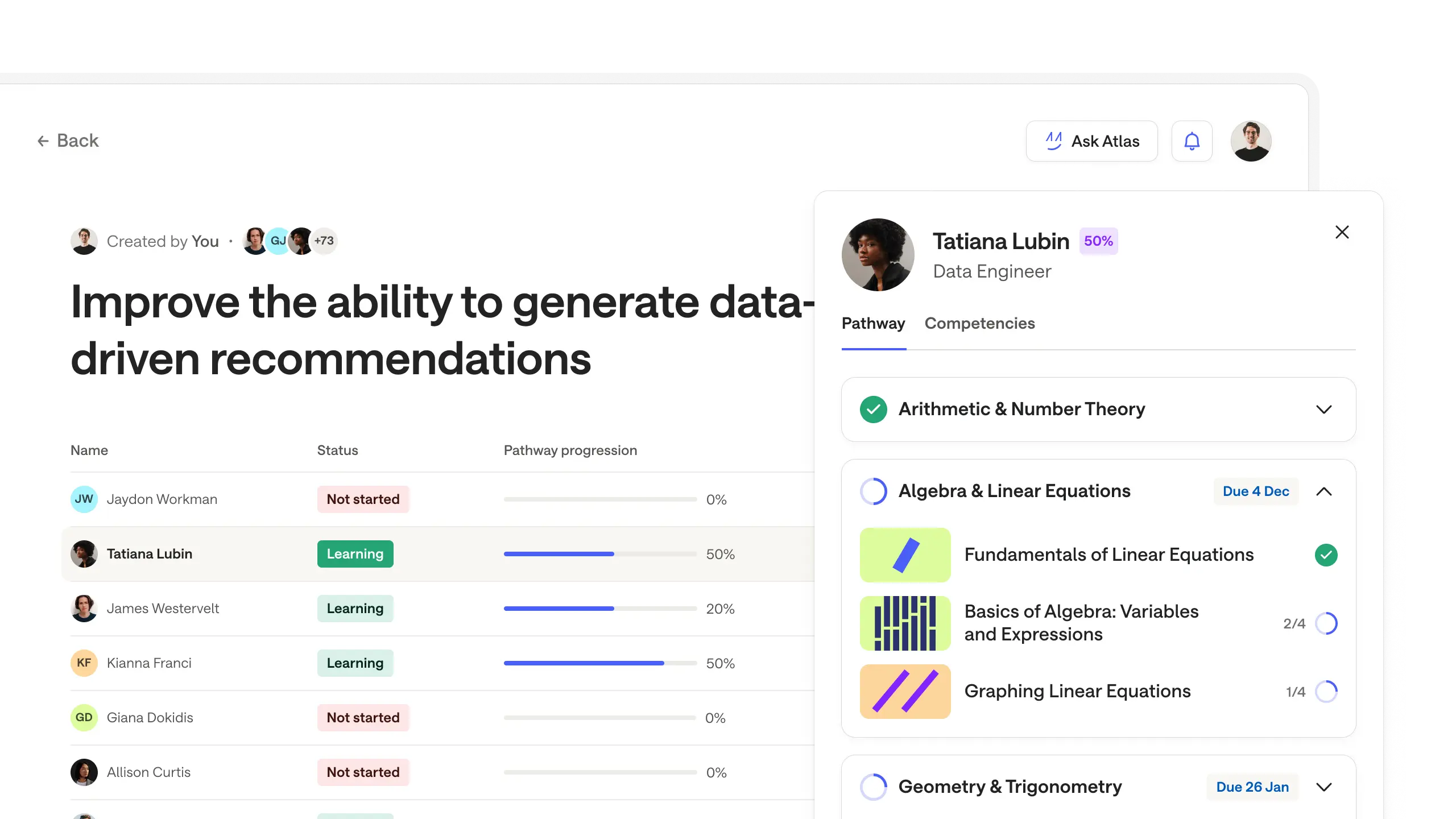Technological innovation is radically reshaping the world of work, with 83% of businesses moving quickly to implement workforce skills development on AI.
The success of the new Government’s mission to drive economic growth will hinge on its ability to boost skills across the UK. Here, there is a key role for the government’s new body Skills England and the planned Growth and Skills Levy, which is set to give employers greater flexibility around the training they provide.
At Multiverse, we exist to solve skills gaps - our work with over 1,500 employers and 16,000 learners has given us a clear perspective on how this policy can help employers future-proof their workforces. We explore this in our latest Skills Mission report.
We need a workforce able to take advantage of the opportunities offered by new technologies
New technologies offer huge potential benefits - AI is estimated to contribute £550 billion to the UK economy by 2035(opens new window). Realising this benefit relies on a skilled workforce able to capitalise on the opportunities offered by new technology. Already, 7.5 million adults lack the essential digital skills needed for the workplace(opens new window), let alone those that may be needed in the future.
On-the-job training will be key to upskilling and reskilling the workforce, and we know that business leaders appreciate the value of training while working, with more than 70% saying it is the best way for young people to develop the skills needed for the workforce of tomorrow, compared to only 26% who said this of learning through academic study.
We can’t simply rely on new entrants to the workforce however - an official government study on the UK economy’s skills gap found that 178,000 roles require hard data skills(opens new window), but the estimated number of data scientists graduating from UK universities is unlikely to be more than 10,000 per year, leaving a substantial gap. If businesses want a workforce ready to embrace new technologies, they will need to invest in workplace training for employees at every stage of the career journey.
If implemented successfully, the new Growth and Skills Levy should help to spark a skills revolution
The new government has committed to replacing the Apprenticeship Levy, which is currently reserved exclusively for apprenticeships, with a Growth and Skills Levy. This will allow businesses to spend a portion of their Levy contributions on non-apprenticeship training - the offer of new flexibility has huge potential to widen access to training.
To deliver the change we need, the new Levy must build on the success of previous reforms to apprenticeships, which have improved the quality of training, with average additional earnings per apprenticeship increasing by 44% over the last decade(opens new window).
Levy funds should be used to support a "Right to Reskill", enabling employers to invest funds in the people who have most to benefit, regardless of geography or employee age or career stage. Recent polling we commissioned Public First to carry out found that nine out of 10 adults supported the idea of a “Right to Reskill”, showing its widespread appeal across all sections of society.
The Growth and Skills Levy should address the parts of the system which could be optimised and avoid unintended consequences. It should be guided by four principles:
- Employer-led: putting employers at the forefront of addressing workforce skill needs. Training funded by the Levy should take what is great about an apprenticeship and focus only on employees undertaking on-the-job learning and the skills required for a specific occupation. It should have a direct link to employment and demonstrate positive economic return.
- For everyone: enabling workers of all ages, wherever they are in the country, to learn new skills throughout their careers and ensuring policy is kept consistent across England, to avoid a ‘postcode lottery’ of access to skills.
- Easily accessible: minimising barriers which limit the uptake of training, including appropriate and proportionate regulation and flexible delivery.
- Excellence-driven: delivering only high-quality in-work training by maintaining strict standards for providers and criteria for training. Ensuring Levy funds are not used to pay for general workplace training, for example, health and safety.
The new Levy should sit alongside reforms to make apprenticeships more accessible
This new opportunity to increase Levy flexibility should not detract from the value of apprenticeships, which offer clear benefits to employers. When asked to rank the best ways to develop the skills needed for their company in the future, half of business leaders placed professional apprenticeships as their first choice.
Instead, the Growth and Skills Levy should sit alongside reform to the apprenticeship system, making it easier for employers to access apprenticeships - for example, making shorter programmes available, enabling delivery through small chunks of training over time and removing the requirement to pass and evidence Level 2 Maths and English to complete an apprenticeship. Public First polling commissioned by Multiverse found that 79% of people were more likely to take an apprenticeship that could be completed in less than 12 months, with 79% more likely to take a course which could be completed in stages.
There is an opportunity to design a Growth and Skills Levy with the potential to boost skills across our workforce and grow the UK’s economy. We'll continue working with our 1,500+ partners to ensure they can get the best use out of their levy funds - to generate real return on investment.
Need help with your Levy strategy?
Want to speak to us about the Levy or other ways to support upskilling in your workplace? Get in touch.






